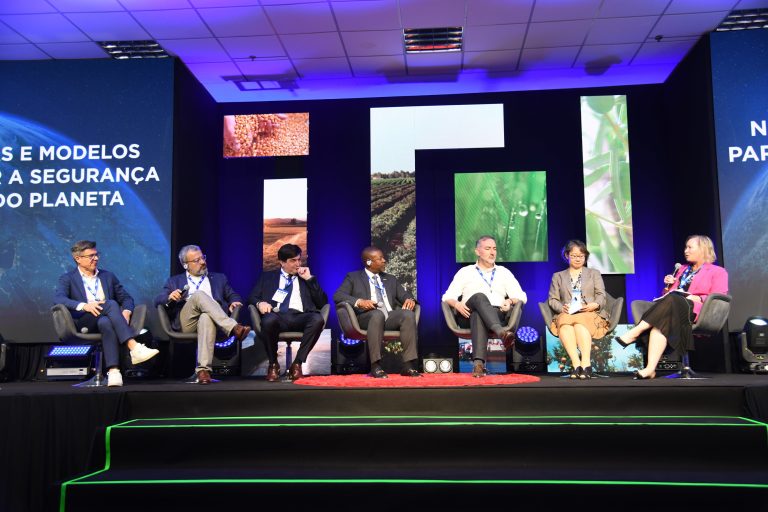Leaders from the European Union, the United States, Japan, Chile, and Mercosur convened at the International Agricultural Forum (FIAP) 2024 in Cuiabá, Brazil, to address the pressing issues of food security and climate change. The international panel, held on 9th September, brought together officials to explore collaborative solutions and new frameworks for sustainable agriculture.
Laurent Javaudin, the European Union’s Counselor in Brazil, opened the panel with a focus on the European Green Deal, outlining measures aimed at achieving climate neutrality and combating global hunger. Javaudin highlighted the significance of the Green Deal for European producers and noted that similar standards would eventually be required for countries exporting to the EU. He called for Brazil to align more closely with the EU in implementing these policies, stating, “No one wants to interfere with the Forest Code; what happens in Brazil will be decided by Brazilians. But we cannot talk about unilateral measures when dealing with global issues.”
Javaudin also praised Brazil’s advancements in agriculture, acknowledging its critical role in global food security. “Without Brazil, this discussion on food security would be much more difficult,” he added.
The message of partnership was echoed by Frederick Giles, Agricultural Attaché from the United States Department of Agriculture (USDA). Giles emphasised the collaboration between the University of Florida and Brazil’s Embrapa in developing bio-inputs for sustainable farming. “We want to join forces with Brazil to strengthen the planet and overcome these challenges,” Giles said, reinforcing the commitment to international cooperation.
Gabriel Delgado, representing the Inter-American Institute for Cooperation on Agriculture (IICA), highlighted global statistics on hunger and advocated for the use of genetic engineering to boost production. He was joined by Ricardo Moyano, Chile’s Agricultural Attaché, who stressed the need for inclusivity in food security efforts, particularly for indigenous populations and women. Ritsuko Yoneda from Japan’s Ministry of Agriculture underscored her nation’s vulnerability due to its heavy reliance on food imports, while Laudemir Muller of Brazil’s Apex emphasised the country’s ability to contribute to global food security, clean energy, and climate change mitigation.
In addition to the panel discussion, a key report was presented to Brazil’s Minister of Agriculture, Carlos Fávaro. The report, compiled by the B20 Task Force on Sustainable Food Systems and Agriculture, highlights the need for sustainable agricultural technologies and practices. Gilberto Tomazoni, Global CEO of JBS and Chair of the Task Force, presented the findings, which involved insights from 139 experts across 22 countries.
Tomazoni emphasised the importance of increasing agricultural productivity through biotechnology, regenerative farming, and digital tools. However, he acknowledged that transforming agri-food systems would face economic and social challenges, particularly in securing the financial backing required for this transition. “Environmental service payments are essential to make financing accessible and feasible,” he noted.
Brazil’s Secretary of Trade and International Relations, Roberto Perosa, cited Renovabio as a prime example of sustainable financing that incentivises greener practices. Minister Fávaro, upon receiving the report, expressed hope that the G20 summit taking place in Mato Grosso later this month would lead to greater global commitment to combating climate change. “Brazil is leading the way in sustainable food production. Let the conclusions of this meeting be a milestone for the next 50 years,” he concluded.

